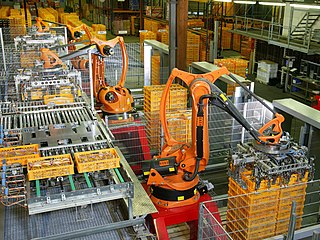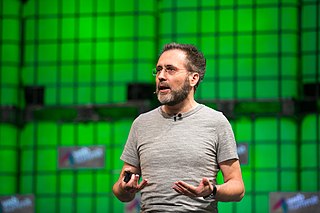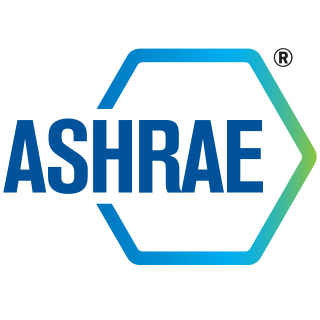
Petroleum engineering is a field of engineering concerned with the activities related to the production of hydrocarbons, which can be either crude oil or natural gas. Exploration and production are deemed to fall within the upstream sector of the oil and gas industry. Exploration, by earth scientists, and petroleum engineering are the oil and gas industry's two main subsurface disciplines, which focus on maximizing economic recovery of hydrocarbons from subsurface reservoirs. Petroleum geology and geophysics focus on provision of a static description of the hydrocarbon reservoir rock, while petroleum engineering focuses on estimation of the recoverable volume of this resource using a detailed understanding of the physical behavior of oil, water and gas within porous rock at very high pressure.
Energy economics is a broad scientific subject area which includes topics related to supply and use of energy in societies. Considering the cost of energy services and associated value gives economic meaning to the efficiency at which energy can be produced. Energy services can be defined as functions that generate and provide energy to the “desired end services or states”. The efficiency of energy services is dependent on the engineered technology used to produce and supply energy. The goal is to minimise energy input required to produce the energy service, such as lighting (lumens), heating (temperature) and fuel. The main sectors considered in energy economics are transportation and building, although it is relevant to a broad scale of human activities, including households and businesses at a microeconomic level and resource management and environmental impacts at a macroeconomic level.

Wrocław University of Science and Technology is a technological university in Wrocław, Poland. With buildings and infrastructures dispersed throughout the city, its main facilities are gathered at a central location near Plac Grunwaldzki, alongside the Oder river. It operates three regional branches in Jelenia Góra, Legnica, and Wałbrzych. Huffington Post UK named Wrocław University of Science and Technology in the top 15 of the World’s Most Beautiful Universities Rankings.
A Bachelor of Engineering, Bachelor of Science in Engineering (BSE), or Bachelor of Science and Engineering is an undergraduate academic degree awarded to a college graduate majoring in an engineering discipline at a higher education institution.
Engineering management is the application of engineering methods, tools, and techniques to business management systems. Engineering management is a career that brings together the technological problem-solving ability of engineering and the organizational, administrative, legal and planning abilities of management in order to oversee the operational performance of complex engineering-driven enterprises.

Facilities engineering evolved from "plant engineering" in the early 1990s as U.S. workplaces became more specialized. Practitioners preferred this term because it more accurately reflected the multidisciplinary demands for specialized conditions in a wider variety of indoor environments, not merely manufacturing plants.

Food engineering is a scientific, academic, and professional field that interprets and applies principles of engineering, science, and mathematics to food manufacturing and operations, including the processing, production, handling, storage, conservation, control, packaging and distribution of food products. Given its reliance on food science and broader engineering disciplines such as electrical, mechanical, civil, chemical, industrial and agricultural engineering, food engineering is considered a multidisciplinary and narrow field.
Energy demand management, also known as demand-side management (DSM) or demand-side response (DSR), is the modification of consumer demand for energy through various methods such as financial incentives and behavioral change through education.

Urs Hölzle is a Swiss software engineer and technology executive. As Google's eighth employee and its first VP of Engineering, he has shaped much of Google's development processes and infrastructure, as well as its engineering culture. His most notable contributions include leading the development of fundamental cloud infrastructure such as energy-efficient data centers, distributed compute and storage systems, and software-defined networking. Until July 2023, he was the Senior Vice President of Technical Infrastructure and Google Fellow at Google. In July 2023, he transitioned to being a Google Fellow only.

Energy engineering is a broad field of engineering dealing with areas such as energy harvesting and storage, energy conversion, energy materials, energy systems, energy efficiency, energy services, facility management, plant engineering, energy modelling, environmental compliance, sustainable energy and renewable energy technologies. Energy engineering is one of the most recent engineering disciplines to emerge. Energy engineering combines knowledge from the fields of physics, math, and chemistry with economic and environmental engineering practices. Energy engineers apply their skills to increase efficiency and further develop renewable sources of energy. The main job of energy engineers is to find the most efficient and sustainable ways to operate buildings and manufacturing processes. Energy engineers audit the use of energy in those processes and suggest ways to improve the systems. This means suggesting advanced lighting, better insulation, more efficient heating and cooling properties of buildings. Although an energy engineer is concerned about obtaining and using energy in the most environmentally friendly ways, their field is not limited to strictly renewable energy like hydro, solar, biomass, or geothermal. Energy engineers are also employed by the fields of oil and natural gas extraction.

The Chartered Institution of Building Services Engineers is an international professional engineering association based in London, England that represents building services engineers. It is a full member of the Construction Industry Council, and is consulted by government on matters relating to construction, engineering and sustainability. It is also licensed by the Engineering Council to assess candidates for inclusion on its Register of Professional Engineers.

A building engineer is recognised as being expert in the use of technology for the design, construction, assessment and maintenance of the built environment. Commercial Building Engineers are concerned with the planning, design, construction, operation, renovation, and maintenance of buildings, as well as with their impacts on the surrounding environment.
In the United Kingdom, a Chartered Engineer (CEng) is an engineer registered with the UK's regulatory body for the engineering profession, the Engineering Council. Chartered Engineers are master's degree qualified or can demonstrate equivalent work-based learning and have gained the appropriate professional competencies through education, further training and working experience. Demonstration of competence is defined in the UK Standard for Professional Engineering Competence, assessed through professional review of academic qualifications and professional development. Formal, non-formal and informal learning can be assessed. The title Chartered Engineer is protected in the UK under law by means of the Engineering Council’s Royal Charter and Bye-laws. As of 2019 there are approximately 180,000 engineers registered as a Chartered Engineer. Chartered Engineers are registered through Professional Engineering Institutions (PEIs) licensed by the Engineering Council which are relevant to their industry or specialism.

The Institute of Nuclear Materials Management (INMM) is an international technical and professional organization that works to promote safe handling of nuclear material and the safe practice of nuclear materials management through publications, as well as organized presentations and meetings.

Industrial engineering is an engineering profession that is concerned with the optimization of complex processes, systems, or organizations by developing, improving and implementing integrated systems of people, money, knowledge, information and equipment. Industrial engineering is central to manufacturing operations.

MAHLE Powertrain Ltd is the engineering services division of MAHLE GmbH. With its headquarters in Northampton, UK and sister company in Plymouth, Michigan, United States, the company specialises in the design, development and testing of electrified powertrain systems and provides a broad spectrum of engineering services to its global customer base. MAHLE Powertrain's engineers and technical specialists are also present in the MAHLE research and development centres in Munich, Germany and Shanghai, China.
The Association of Energy Engineers (AEE) is a non-profit professional society founded in 1977 by Albert Thumann. The organization promotes scientific and education interests in the energy industry through its networking and outreach efforts and educational and professional certification programs.

Marilyn A. Brown is a Regents' and Brook Byers Professor of Sustainable Systems in the School of Public Policy at the Georgia Institute of Technology. She joined Georgia Tech in 2006 after 22 years at Oak Ridge National Laboratory, where she held various leadership positions. Her work was cited by President Clinton as providing the scientific justification for signing the 1997 Kyoto Protocol. With Eric Hirst, she coined the term "energy efficiency gap" and pioneered research to highlight and quantify the unexploited economic potential to use energy more productively.

The École nationale supérieure de l'énergie, l'eau et l'environnement(Ense3) is one of the engineering schools of the Institut National Polytechnique de Grenoble. As a grande école, students are admitted through a nationwide competitive examination. It was formed by the merger of the École nationale supérieure d'hydraulique et de mécanique de Grenoble (ENSHM) and the École nationale supérieure d'ingénieurs électriciens de Grenoble (ENSIEG).

The American Society of Heating, Refrigerating and Air-Conditioning Engineers is an American professional association seeking to advance heating, ventilation, air conditioning and refrigeration (HVAC&R) systems design and construction. ASHRAE has over 50,000 members in more than 130 countries worldwide.













